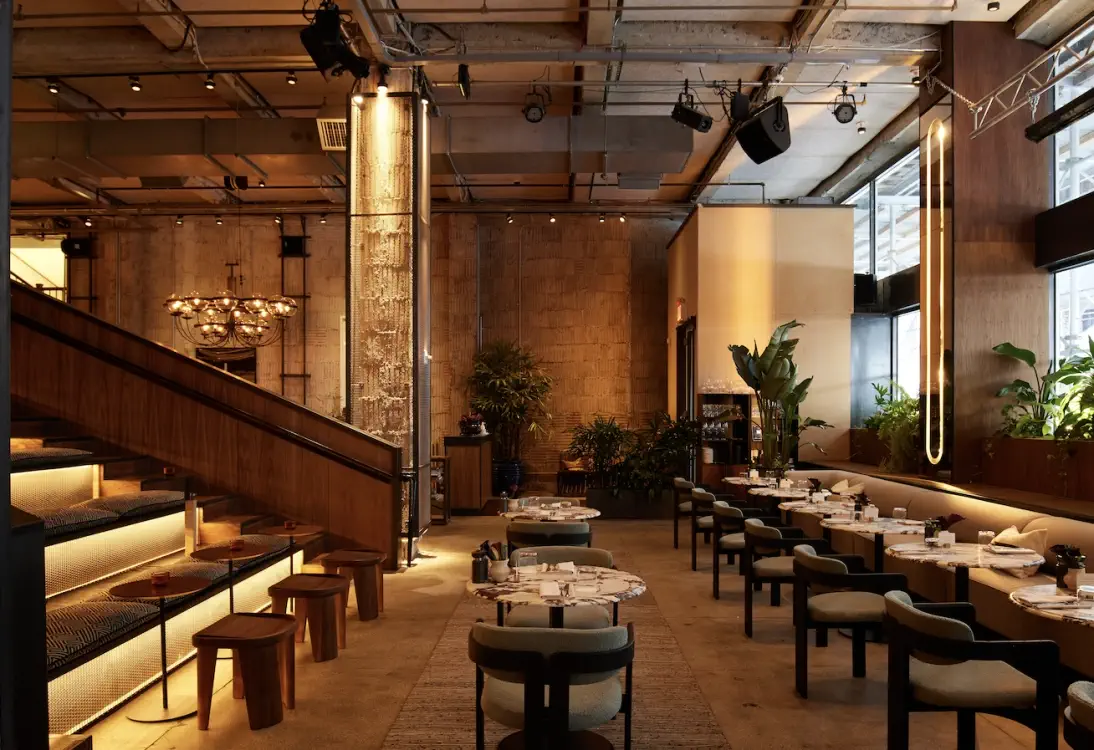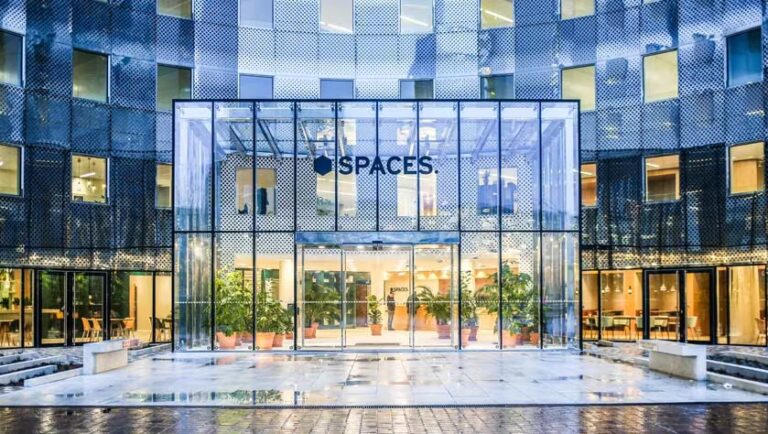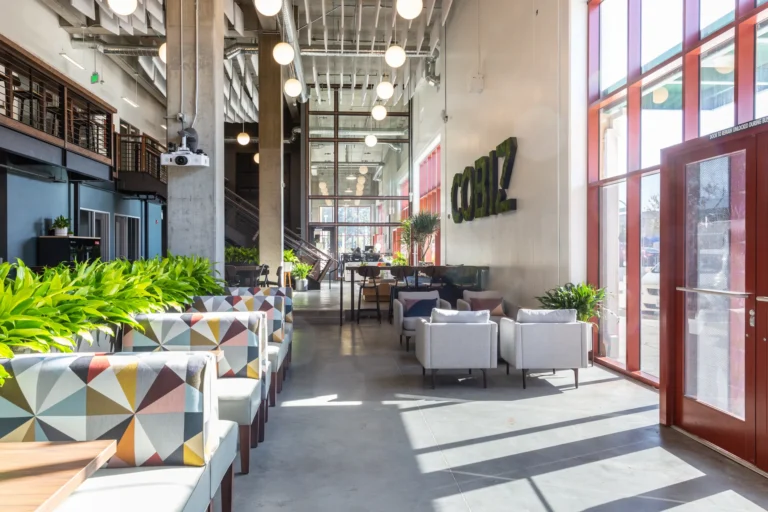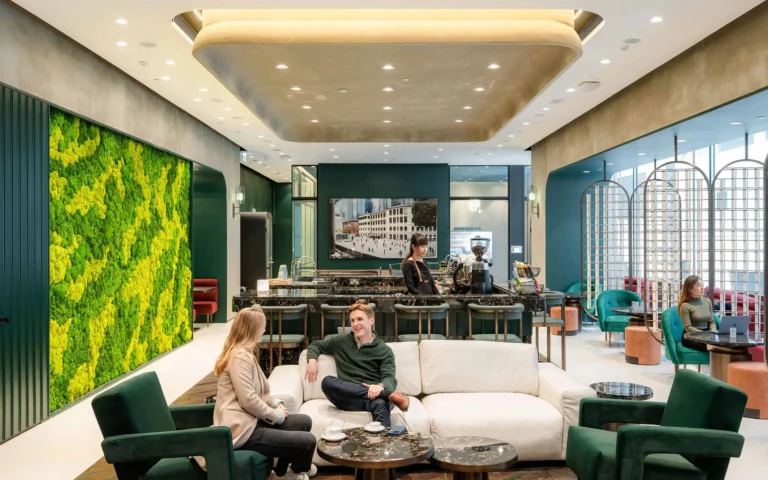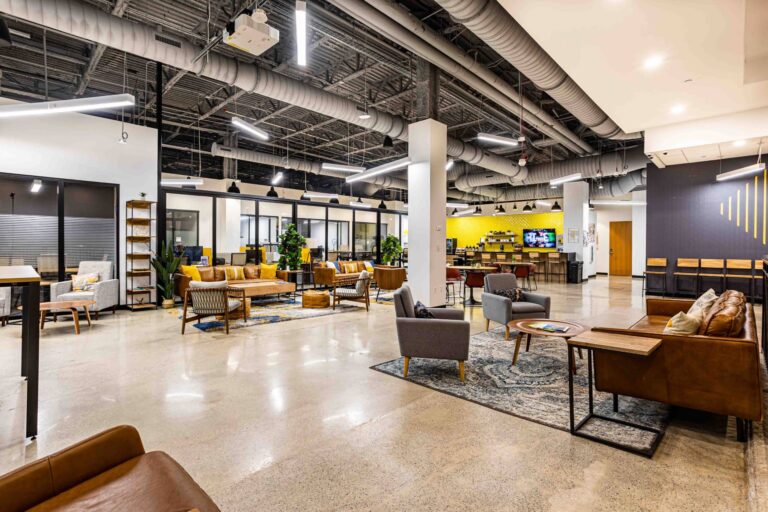Office Coworking Space Your Ultimate 2025 Guide to Flexible Workspace Solutions
An office coworking space is a shared workplace environment wherein individuals or teams rent desks, private offices or meeting rooms rather than leasing an entire building or signing long-term commercial leases. These spaces are managed by a provider who offers services, amenities and flexibility. According to industry resources, coworking spans a range of practice-from hot desks, dedicated desks, private offices to full-floor solutions.
Such spaces are particularly popular in 2025 as companies embrace hybrid working models, remote teams and agile scaling strategies. They provide a “plug-and-play” workplace solution that avoids long-term commitments, heavy fit-out costs and operational burdens of owning or leasing large offices.
Why This Concept Matters Now
The shift toward flexible work means that many organisations no longer want to be tied into 5-10 year leases for large premises. Coworking spaces allow quicker entry, scalability (up or down), and access to premium locations at a fraction of the cost of traditional leases. For freelancers, start-ups, SMEs and even larger enterprises, coworking becomes a strategic choice for cost efficiency, talent attraction and location flexibility. As one provider puts it: “Freelancers, entrepreneurs, and small teams-find your ideal coworking space with a dedicated desk, day pass, or meeting room.”
Benefits of Choosing an Office Coworking Space
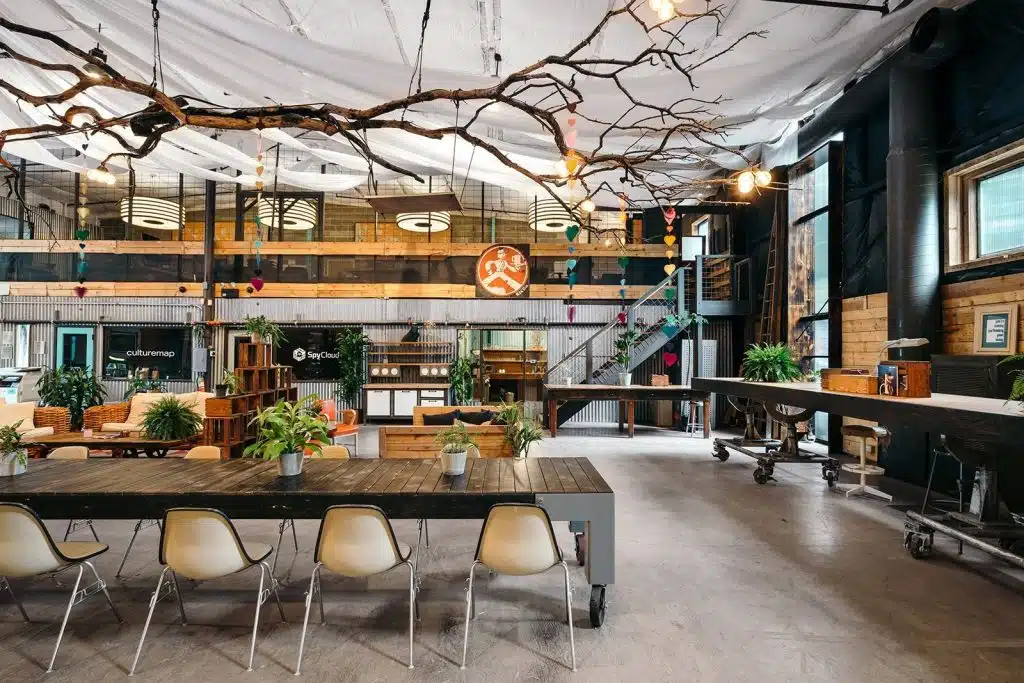
Flexibility and Lower Upfront Cost
One major benefit is the significantly lower upfront cost compared to leasing a conventional commercial office. You avoid paying for full floor plates, lengthy lease commitments and major fit-out costs. Many coworking providers offer monthly or short-term membership models, enabling you to adjust as your business changes. For example, the WeWork listing in Jakarta shows membership starting at around Rp 1,800,000 per month for dedicated desk options.
Additionally, scalability is built in: as your team grows, you can increase desk counts or move into larger private offices within the same building or network; if you contract, you can scale down without being locked into multi-year leases.
Access to Premium Location & Modern Amenities
Coworking spaces often secure prime office addresses—central business districts or high-visibility zones—that may otherwise be cost-prohibitive for smaller teams. They deliver amenities like high-speed internet, meeting rooms, reception, cafes, lounges and networking events. These features help teams look professional and attract talent.
Technology plays a role too: many coworking operators provide digital booking systems for meeting rooms, mobile access credentials, and apps to manage your membership. This tech dimension improves user experience and reduces administrative load. For teams focused on productivity rather than managing office infrastructure, coworking offers a “turn-key” solution.
Community & Networking Benefits
Beyond physical desks, coworking spaces often nurture communities-networking events, collaboration opportunities, shared resources among members. This opens doors for knowledge-sharing and partner opportunities. According to the article on creative coworking spaces, design and community atmosphere are key to attract and retain members.
This benefit addresses the problem of isolation or limited connectivity often faced by remote workers or small teams, providing a social and professional ecosystem rather than just four walls.
Five Real-World Office Coworking Space Options
Below are five notable coworking space providers or locations you can evaluate now. Each is treated as a “product” in this article-an actual workspace offering your business can lease or join.
1. WeWork Jakarta Coworking Space
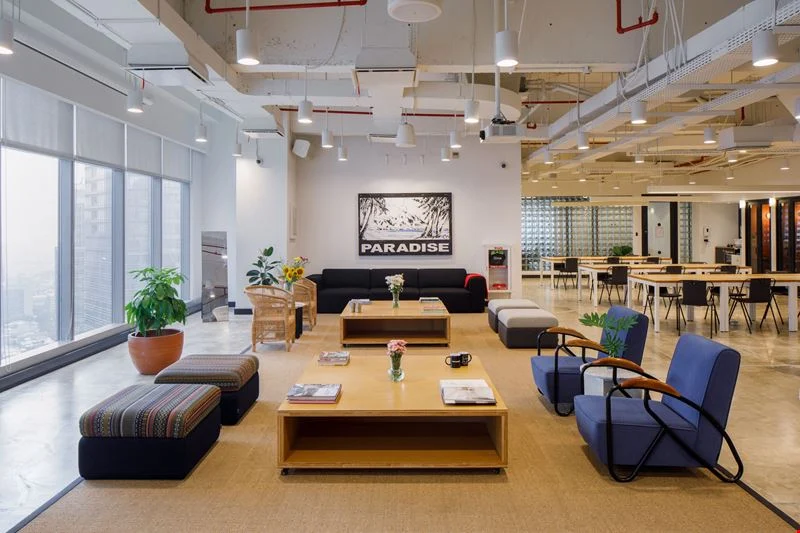
WeWork offers coworking, private offices and enterprise floors in multiple buildings in Jakarta. It lists dedicated desks starting from approx. Rp 1,800,000 per month for standard membership.
Product details:
Their offerings include flexible monthly contracts, the option for private offices for teams of 1-100+, meeting room credits, business-class printers, onsite staff and networking events. They also support remote/hybrid working models with drop-in access and global location benefits.
Benefits:
For businesses in Indonesia or the Asia-Pacific region, WeWork provides access to a professional address, high-quality infrastructure and brand-recognised workspace. This solves the problem of finding high-standard office space without committing to a 5-10 year lease or significant capex.
Use case:
A tech startup headquartered in South Tangerang wants a downtown Jakarta presence for client meetings and team workspace. They lease a private office at WeWork Jakarta, benefit from monthly flexibility, and scale upwards as they hire.
Where to join:
Join WeWork Jakarta →
2. Industrious Coworking Space
Industrious is a premium coworking brand, offering private offices, team suites and enterprise solutions in major US cities and globally.
Product details:
Their spaces are designed with high-end finishes, hospitality-style amenities, dedicated community teams and a tech-enabled member portal for booking rooms, managing subscriptions and accessing global locations.
Benefits:
For companies seeking a high-quality workplace experience (to attract senior talent or clients), Industrious offers a refined environment. This addresses the challenge of some coworking spaces being too casual, and provides a sophisticated alternative.
Use case:
A consultancy firm with a small London team needs a flexible office in NYC for their US presence for 6 months. They lease a private office suite with Industrious, benefit from no long-term commitment, and maintain their professional brand appearance.
Where to join:
Explore Industrious Memberships →
3. The Network Hub Vancouver
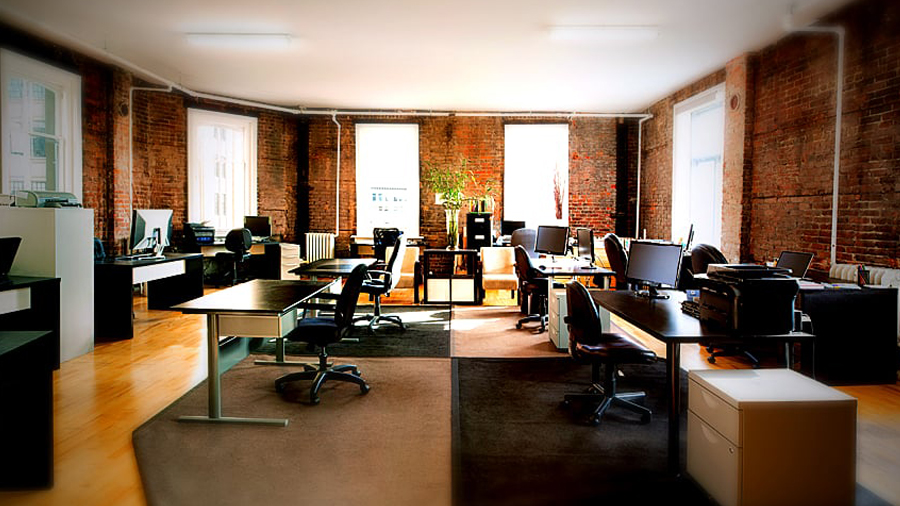
The Network Hub is one of Canada’s longest-running coworking spaces, based in Vancouver, offering flexible memberships, private offices, meeting rooms and virtual office services.
Product details:
Members access drop-in desks, dedicated desks, private offices, mail services, receptionist, meeting rooms and community events. Memberships range from daily to annual terms, according to the user’s needs.
Benefits:
For entrepreneurs or small businesses entering a new market (e.g., Canada) with minimal commitment, this space offers local presence, community support and flexible terms. It solves the problem of entering a new geography without major real-estate risk.
Use case:
A Singapore-based digital agency wants a branch in Vancouver to work with North American customers. They use The Network Hub to set up quickly, employ local staff and avoid heavy lease commitments, while keeping costs manageable.
Where to join:
Start Membership at The Network Hub →
4. SOHO 3Q Coworking China
SOHO 3Q is a major player in the Chinese coworking market, founded by real-estate developer SOHO China. They operate large-scale coworking spaces in Beijing and Shanghai.
Product details:
They offer weekly desk rentals (from around 560 CNY per desk) in large open-plan coworking halls and private offices. Their facilities include WiFi, printing, meeting rooms, phone booths and community events for startups and tech firms.
Benefits:
For firms targeting expansion in China, this offers a rapid route to local workspace without navigating long-term leases or establishing local property company. It solves the challenge of market entry in China via flexible coworking membership.
Use case:
An Australian fintech company launching operations in China needs a base in Beijing pilot region. They lease space at SOHO 3Q for their local team, and use shared services and infrastructure until they scale.
Where to join:
Explore SOHO 3Q Membership →
5. NeueHouse Coworking & Social Club
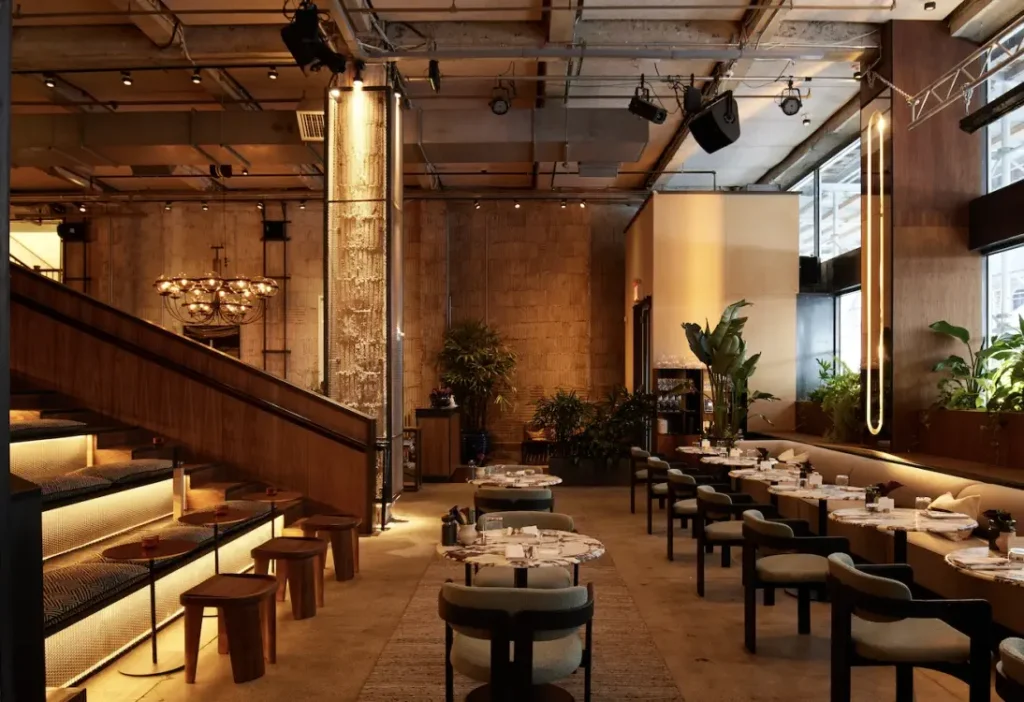
NeueHouse is a hybrid coworking and private-club concept in New York, Los Angeles and London, offering workspaces, event spaces, lounges and curated social programming.
Product details:
Membership includes access to private-office suites, networking events, cultural programming, podcast studios and social lounges. The aesthetic and service is premium-luxury, aimed at creative professionals and entrepreneurs who value brand image.
Benefits:
For founders or companies who want their workspace to reflect a premium brand and to provide differentiated experience to employees or clients, NeueHouse meets that need. It solves the problem of standard coworking spaces lacking prestige when brand image matters.
Use case:
A high-profile media agency relocating to London wants office space that impresses clients and hosts events. They choose NeueHouse membership, secure a private office, use the podcast studio and event lounge for brand launches.
Where to join:
Request Membership at NeueHouse →
How to Choose and Lease an Office Coworking Space
Step 1: Determine Your Team’s Needs and Growth Plan
Before choosing a space, define your current requirement (number of desks/private offices), projected growth (in 6–12 months), preferred location (city/zone), required amenities (meeting rooms, high-speed internet, event space), and budget. Consider how hybrid work or remote options influence desk counts. This clarity helps you select the right coworking provider.
Step 2: Compare Terms, Flexibility & Costs
Evaluate membership models: daily, monthly, yearly; whether desks are hot or dedicated; private offices versus shared; termination options; community benefits; whether meeting rooms and printing are included or cost extra. Flexibility is key-look for the ability to upscale, downscale or exit with minimal penalty.
Step 3: Visit the Space and Test the Environment
Conduct a site visit: assess noise levels, layout, natural light, furniture quality, café/lounge services, meeting room booking ease, Internet reliability, and the community atmosphere. Also check hidden costs (lock-in, surcharge for meeting rooms, printing). Good design influences productivity and satisfaction; design-inspired spaces attract talent.
Step 4: Negotiate and Sign Membership Agreement
Once you’ve chosen a provider, negotiate key concerns: start date, number of seats, private office size, access hours, termination rights, price escalations, lock-in period, and included services. Make sure exit/relocation clauses are clear, as flexibility is one of the major benefits of coworking.
Step 5: Onboard Team and Use Technology Features
After signing, onboard your team: set up dedicated desks or offices, train staff on booking systems, meeting rooms, community events, and networking. Use provider App or portal (many coworking providers offer mobile apps for member services). Technology enhances the experience and ensures you take full advantage of the offering.
Technology and Productivity Benefits of Office Coworking Spaces
Analytics & Booking Platforms
Many coworking providers offer mobile or web apps that allow members to book desks, reserve meeting rooms, order services (printing, catering), check live occupancy and network with other members. This reduces administrative friction and improves efficiency. It solves the problem of legacy office systems being cumbersome and supports hybrid work (desk hotelling, flexible access).
Collaboration Tools & Community Platforms
Coworking spaces often incorporate internal social or networking platforms enabling members to connect, share expertise or find partners. For startups and SMEs, these community tools unlock value beyond the physical space-introducing collaboration, business development and peer support.
Smart Workspace Features
Modern coworking offices leverage IoT: sensors track occupancy, lighting and HVAC adapt to usage, booking systems monitor utilisation and data can optimise space. This technological infrastructure benefits businesses by offering more efficient use of space, lower operating cost for the coworking provider (passed through in service) and data for future planning.
Use Cases: Why Businesses and Individuals Choose Office Coworking Space
Use Case 1: Start-Up Launch Requiring Professional Address
Problem: A fledgling company needs a credible office presence, high-quality infrastructure and meeting space but doesn’t want a five-year lease.
Solution: They join a coworking space, lease a small private office + meeting credits, benefit from central address, no heavy capital expenditure, and scale easily as they hire.
Use Case 2: Remote or Hybrid Teams Needing Flex Space
Problem: A company’s workforce is hybrid; they don’t need full traditional office occupancy but want a hub where employees can meet occasionally.
Solution: They Lease a coworking membership or dedicated desk for members when they choose to co-work, with conference rooms and lounge access included. This solves the problem of paying for unused space and gives design-quality workspace on days when presence is needed.
Use Case 3: Expansion to New City or Market
Problem: A business enters a new city or country and wants to test market with minimal commitment.
Solution: They use coworking space as regional HQ-private office for core team + hot desks for flexible users. After market validation they may scale or relocate. This solves the risk and cost of long-term lease in unknown market.
Use Case 4: Professional Solo or Consultancy Worker
Problem: A consultant or freelancer wants to move out of home or café, get professional address and networking opportunity, but cannot justify full office lease.
Solution: They join coworking space, use hot desk or dedicated desk membership, attend events and meet clients in meeting rooms. This addresses professional image and community access.
Use Case 5: Corporate Satellite Hub
Problem: A large corporation wants satellite offices in multiple cities for agile teams, but traditional leases would be inefficient.
Solution: They rent coworking memberships or private suites across multiple branches, benefit from standardised process, shared brand environment and flexibility. It solves the logistical and cost challenges of multi-city footprints.
Frequently Asked Questions
Q1: How much does renting an office coworking space cost?
Costs vary widely by location, office type (hot desk, dedicated desk, private office) and amenities. For example, in Jakarta a dedicated desk at WeWork starts at around Rp 1,800,000 per month. WeWork Additional costs may apply for meeting room usage, event spaces or higher membership tiers.
Q2: Is a long-term commitment required for coworking space?
No. One of the major advantages is flexibility. Most providers offer monthly memberships or shorter terms. Some private offices might require a 12-month minimum, but many offer 6-month or even month-to-month options. Always check the membership agreement for lock-in terms and exit rights.
Q3: What should I check before leasing a coworking space?
Key checks include: location and accessibility, membership term/exit clause, security and access hours, included amenities (internet, meeting rooms, printing), community and networking opportunities, scalability (can you add seats/private offices easily), contract terms (lock-in, escalation), and whether the culture fits your team. Also test WiFi, meeting room availability and tour the space. Design and comfort matter—references show well-designed coworking spaces attract and retain users.
